Food can be the perfect medicine... or the best poison.Our body does the best it can and can only run off the fuel we give it. While most of us try to eat healthily the majority of the time, sometimes the "good" foods we are regularly recommended can make us feel ill. If we are taking in foods that don't agree with us, regardless of which Food Guide or expert recommends them, our body will mount a reaction in order to tell us that we shouldn't eat it. If we continue to consume these foods, the body turns up the dial until we have to listen. Your Cheat Sheet to Food Reactions:
Timing is everythingOne reason it can be so difficult to identify a food reaction is that we may react hours, days or even weeks after ingesting the food in question. If you tend to eat a highly varied diet or eat the same foods over and over, pin-pointing that one meal can be a challenge, particularly if you started to feel crummy a few days later. Trust your gut..but look for other clues.The gut is the gateway to the rest of the body. If a food reacts in our gut, it impacts not only our digestive function, but the rest of our body as well. In particular, the immune system, neurological and reproductive systems get involved. Symptoms of a food sensitivity can include:
Your symptoms may evolve over time as well. For example, I notice with myself that when I eat gluten I start to feel very sleepy and have an immediate-onset brain fog. If I continue to ignore my body and eat more - I am the first to admit I am very human and not immune to a fresh slice of bread from time to time - I get some pretty intense stomach cramps and constipation. Since I so seldom eat it, I notice this right away. When I was in university on a tight student's budget, I tended to a lot of pasta (it was cheap, quick and filling) I suffered from debilitating sleep attacks plus all those digestive symptoms, weight gain around the middle and acne. Eventually I realized from trial and error that it was worth spending a few extra bucks, saving the gluten/starch binges for a very occasional treat in order to be more productive, focused, energetic and healthy. As you can see, it certainly goes beyond the digestive system! So how do I know if there's a problem... and what can I do about it?If you're asking yourself this, you've come to the right place!
Working with your family doctor or allergist, standard allergy testing is often recommended to test for IgE-type reactions. Treatment then involves taking an antihistamine (Reactine, Benedryl etc.), epinephrine (eg. carrying an Epi-pen) and/or complete avoidance. However, by now you will realize that IgE reactions are just a small part of the picture. Here is how I treat food reactions:
If you or someone you know is suspects that a food reaction might be contributing to feeling unwell, I would like to offer you a complimentary 15 minute consultation with me to discuss your concerns.
2 Comments
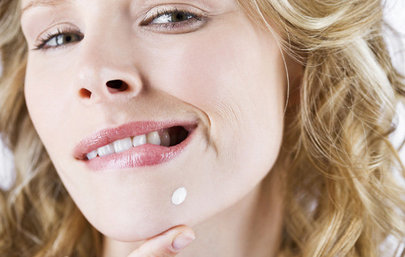 http://vipmobiledayspa.wordpress.com/2013/06/28/super-foods-that-fight-acne/ http://vipmobiledayspa.wordpress.com/2013/06/28/super-foods-that-fight-acne/ Ugh. 7 am. There's a bright red, angry monster that somehow took up residence on your chin overnight and is now staring back at you in the mirror. The beast hurts when you touch it. It is also probably giving you the stink-eye, just in time for your incredibly important interview. I've been there too. As a teen I had acne so bad it covered my face, chest and back. I went through years of antibiotic creams, washes, birth control pills that I never wanted, and Proactive facial care systems that stained all of my mother's towels. I was even on Accutane for two years. A high dose pharmaceutical variation on Vitamin A, Isotretinoin or Accutane, is commonly prescribed for severe cystic acne. While it is known teratogen (meaning that it is known to cause severe birth defects), a less common side effect of the drug is anxiety, depression and even suicidality. Fun times for me, when both me and my high school boyfriend were taking long courses of Accutane. It worked, however it was a pretty dark time and I'm lucky my family was so patient with me. It has since been taken off the market in Canada due to a possible link between use and Inflammatory Bowel Disease. Yikes! Acne vulgaris (the medical, even uglier sounding term) can be caused by a number of concerns, including: Hormonal imbalances - excess testosterone, or excess estrogen, PCOS, puberty, pregnancy/post-partum, menopause hormonal changes Food sensitivities - dairy, gluten, eggs are the most common although there are many other possible culprits, sugar, preservatives Digestive Weakness - low stomach acidity, excess protein (often from conventionally raised animals whose meat is pro-inflammatory and hormone-laden), poor gut flora, recent antibiotic use Medications - corticosteroids, oral contraceptives, anabolic steroids Allergies - cosmetics, chemicals, fragrances, clothing material, detergent Stress - lack of sleep, stress hormones in overdrive, less-than-scrupulous (or overly vigorous) hygiene But I'm not a teenager anymore! While it can be pretty devastating dealing with acne as a teen, most of us grow out of it. However, some people have acne lasting well into their 30's and 40's. Many others are suddenly faced with some angry crops of acne as adults. Several women I see with adult acne struggle to be taken seriously in their professional lives while feeling that that they look like a kid. Acne is not uncommon in the body-building world either, as anabolic steroids, sweaty work-out cloths and high amounts of whey protein powders can contribute to facial and b-acne. In these cases, look to food sensitivities and other environmental factors. Another form of adult acne, Rosaceae, is often related to low stomach acid or or food sensitivities. So what can I do for my adult acne? 1. Ditch the chemical laden products - Check out EWG's Skin Deep Cosmetic Database to determine if your cosmetics and personal care products could be contributing to your symptoms. Pay particular to expensive high-end brands - many of them have some particularly nasty ingredients. 2. Switch to raw honey as a facial cleanser. Full of good bacteria, honey acts as a skin normalizer for both oily and dry skin and promotes healing. 3. a) Limit sugar, dairy and processed foods. Low glycemic diet and acne (American Journal of Clinical Nutrition, 2007), Acne: the role of medical nutrition therapy (Journal of the Academy of Nutrition and Dietetics, 2013) b) Clean up your diet. Focus on lots of orange and yellow fruits and vegetables like carrots, winter squash, and pumpkin as they contain beta-carotene to help improve skin health. Leafy greens such as dandelion, beet greens, spinach, kale, chard, water cress, blue-green algae (spirulina, seaweeds) tonify the liver to help balance hormones. Mung beans, adzuki beans, unpeeled cucumber slices, alfalfa and soy sprouts are all used in Traditional Chinese Medicine for the treatment of acne as well. 4. Drink lots of water and green tea. Your kidneys and liver filter toxins out of your body - staying well hydrated assists this function. 5. Adopt a regular stress management practice. Acne is associated with lower self-esteem, higher and rates of depression - Understanding the burden of adult female acne (Journal of Aesthetic and Clinical Dermatology, 2014). Yoga, deep breathing, and exercise can be helpful for confidence breathing, handling stress and improving your quality of life. Check out Jean's story... this is a great example of how naturopathic medicine can help treat adult acne with amazing results! Naturopathic approaches to acne involve removing food sensitivities, creating a tailored supplement protocol, stress management exercises and hormonal support as needed to help resolve current acne, minimize scarring and reduce the occurrence of future outbreaks. If you are struggling with acne - whether you are a teen or a grandmother or anywhere in between - let's set up a time to chat. Here's to your clear skin! Dr. Keila 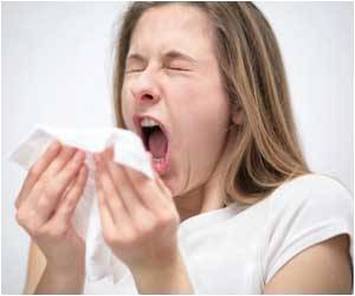 Note that most of us don't look this put together when we're at home with a cold. There's probably more fall-out and stains on our dazzling white T-shirts. Note that most of us don't look this put together when we're at home with a cold. There's probably more fall-out and stains on our dazzling white T-shirts. Tackling the common cold naturally is easy. Here's how I recover when I'm feeling under the weather. Like the beginning of my relationship with my husband, it all started with a tickle. It quickly progressed to a fever. (Fever! In the morning, fever all throuu--gh the night!). I had it and I had it bad. Only this time I'm talking about a cold. I knew after a few weeks of irregular bedtimes, post-Valentines chocolate haze and some business decisions my body was telling me that it was time to take better care of myself. All in all I was only out for three days, but during that time I slept like it was my job. I'm feeling much better because, you know what? I've got some tricks up my sleeve. Want to know what this ND does when a cold strikes? Yes, you do. Licorice root tea
Ginger decoctions
Warming socks
Yoga
Sleep
If your family is interested in cold & flu prevention, naturally, book a FREE 15 minute appointment with me to learn how I can help you. Be well. When our nerves are healthy, so are the muscles, tissues, joints and vessels that are supplied by that nerve. Acupuncture may help to improve nerve health. 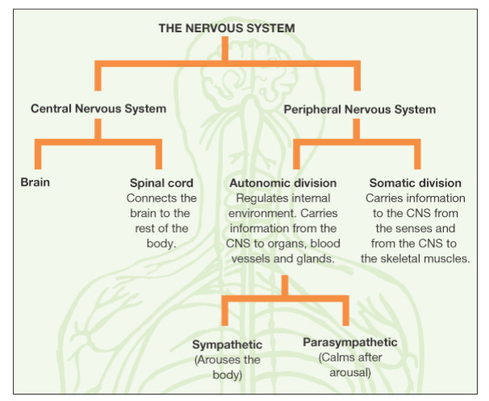 The Nervous System. Acupuncture can help to balance the Autonomic and therefore, Parasympathetic and Sympathetic Nervous System divisions via stimulation of certain nerves. The Nervous System. Acupuncture can help to balance the Autonomic and therefore, Parasympathetic and Sympathetic Nervous System divisions via stimulation of certain nerves. Acupuncture. I've been there. I use it every day in my practice for hormonal conditions, acute headache, stress and sleep disorders and most of all, pain management. Being the keener that I am, I spent my weekend in Toronto at the Canadian College of Naturopathic Medicine learning about integrative approaches to pain management using acupuncture. While acupuncture and Traditional Chinese Medicine (TCM) is a major component of the scope of practice of Naturopathic Doctors in Ontario, TCM is a field of study that could occupy a lifetime. I use on a daily basis with my patients and am constantly learning new ways to work with people. The take home of the course is that the Nervous System is King. When our nerves are healthy, so are the muscles and organs that they innervate. When the nerves are under- or over-stimulated, under-nourished, or damaged, the parts of the body that these nerves feed will be affected too. In other words, it is not about the sore back muscles or a herniated disc, but about the damaged spinal nerves causing those issues. Therefore, the most effective way of decreasing that pain is not just by sticking a needle where it hurts (along the lines of "medical acupuncture" that you might receive from your physiotherapist) but also by targeting the nerve that supplies that area. A Case of the Nerves Many disorders are related to the nervous system. For example, peripheral neuropathy is a condition that arises from apparently "normal" nerves wherein abnormal impulses are transmitted along the neuron resulting in pain, altered sensation, muscular weakness or changes in skin, hair and nail growth in that nerve's distribution. Peripheral neuropathy is associated with advanced Type 2 Diabetes, B12 deficiency anemia, kidney and thyroid disorders, alcohol abuse, autoimmune conditions and repetitive injuries. Conventional approaches include pain medication, antidepressant and anti-convulsive medications and lifestyle counseling for wound care, but sometimes fail to address why the nerve is unhealthy in the first place. In the picture below, you can see that there are several "departments" of the nervous system. The Autonomic Nervous System takes care of many body functions that we don't consciously control: breathing, sweating, blushing, the urge to urinate, salivation, respiration rate... although there are many instances where we probably want to. Diseases of Autonomic function include Fibromyalgia, heart failure, Diabetes Mellitus, sexual dysfunction, Parkinson's Disease, and Multiple Sclerosis and many others. The ANS is further divisible into the Parasympathic and Sympathetic Nervous System. The Parasympathetic Nervous System should be our dominant state of being, the "Rest and Digest" and even "Feed and Breed" mode. However, when we are constantly in a state of arousal: angry alarm clock, running late, report due, sitting in traffic, arguments etc. the Sympathetic Nervous System takes over. Better known for its "Fight or Flight" functions, the SNS serves to kick our bodies into high gear to help us survive a life-threatening attack. The problem is that our body has not evolved to differentiate between the stress of an impending shark attack or that presentation we have to give in front of the company. We only know that there is a threat. Problem? Yes. When we are constantly in overdrive, we take away vital resources from our body's essential day-to-day functions such as digesting without pain, tissue repair, restful sleep, consolidating short-term information into long-term memory and making babies. All of these concerns walk into my office on an regular basis. So what is a busy person to do? Train your body! In my practice, I teach people how to shift their bodies from a state of constant alarm in Flight or Flight into a more sustainable Rest and Digest mode. We can do this through deep breathing exercises, gentle movement, massage, cultivating a state of mindfulness and self-care. Sometimes, additional help such as botanicals (often in teas), homeopathy, supplementation and you guess it, acupuncture are helpful to reinforce that message. Consistency is key here. We adapt to patterns that may or may not be healthy for us, and it takes a repeated effort to initiate a new way of operating. Therefore, it is recommended that any changes you make, provided that they are safe and appropriate for you and under the guidance of a qualified health care professional, are used on a regular basis. Check me out.. I'm getting acupuncture to help rebalance my nervous system! If you are interested in acupuncture for pain management, book a Health Discovery Session with me to discuss if this treatment is right for you. 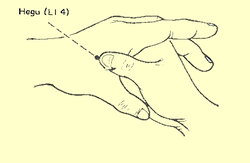 Headaches are a common concern in my practice and represent a condition that affects nearly everyone at some point or another. Headaches can sometimes be a challenge to work with because there can be many different triggers - dehydration, stress, food sensitivities, low blood sugar, medication (did you know that nitroglycerin, used for angina, will always cause a severe headache?). And with some types of headaches like cluster headaches, the jury is still out to lunch about the cause (although there are higher rates amoung smokers). Menstrual cramps, on the other, are a familiar problem for many women. Some parts of the world even offer a regular menstruation holiday for women whose menstrual cycles cause enough pain that it disrupts their ability to work productively and efficiently. Interesting thought. Right between your thumb and index finger, on the back of either hand, you have a very powerful point for controlling pain in the whole body but especially the head and neck, and menstrual cramps. This point is called Hegu or Large Intestine 4, and in Traditional Chinese Medicine (TCM) is considered to be the command point for the head and neck as well as the Yuan Source point - making it one of the safest, and effective go-to's for pain relief. The point is often needled during acupuncture treatments for dizziness, congestion, pain and swelling of the head (including headaches and migraines), toothache, facial paralysis. It also exerts a whole body influence on pain control, abdominal pain, constipation, and dysentery. Because of its influence on the abdomen, it is very useful for dysmenorrhea (menstrual cramps), amenorrhea (absence of periods) and inducing labour. At home you can apply moderate pressure to this point on either hand for 30 seconds at a time while focusing on taking slow deep breaths in and out. Try it for yourself! Note, women that are pregnant should not use this point as it is thought to stimulate uterine contractions. If headaches or menstrual cramps are a persistent problem for you, consider seeking care from a health care provider such as a Naturopathic Doctor (me!) to provide more insight why. Neither of these conditions, although incredibly common, need to be tolerated on a regular basis and can definitely cause some quality of life issues. You are better off to learn the cause and then treat appropriately =).  There was a running joke in our family growing up: Don't mess with a German Sheppard while it's eating. By German Sheppard, we meant me. I don't mean to say that I was particularly clumsy with my utensils - on the contrary, my mother was very adamant about us knowing exactly which fork to use, how to use chopsticks, a la Emily Post. Nor that I was the perfect family pet. The joke was that I am very serious with my food. I wake up excited about all of the delicious things that I want to eat in the day, my husband and I are addicts of Gordon Ramsay's Ultimate Cookery Course, and I am happiest puttering around the kitchen making food for my family. Also, that one might be taking their life into their hands by coming between me and my plate. My father actually called me "Spike" as a kid, and my uncle DID teach me to growl as a toddler... just capitalizing on my hungry dog status. I digress. In Chinese Medicine, there is the concept of "Digestive Fire" which is essential for us to be able to process the foods we take into our body, extract the nutrients and in turn be nourished. In me the Digestive Fire was quite strong. In fact, I would diagnose myself as having Stomach Fire, which can show up as extreme hunger, canker sores, lots of burping, and unquenchable thirst. Add to that a family propensity for hypoglycemia and not enough vegetables, and we had a recipe for a kennel full of hangry (hungry + angry, fyi) puppies at our house. That is, until I adopted a more Primal or WAPF way of eating. I used to go from craving starch, and carbs, and salt, and sugar... and did you just say cupcake???? ALL THE TIME to only having minimal food cravings and feeling more satisfied. My secret? Chew the fat. Yes, you can discuss your day at the dinner table. What I really mean is that by increasing healthy fats in my diet I no longer am in danger of causing bodily harm to my loved ones in public because someone just wanted a bite (probably of my steak). Fats act to slow the digestion and absorption of sugar into your blood stream which means that you will feel more stable, energetic and full longer. Sugar is essentially a drug - we crave it because it gives us a high, and when the effect wears off, we feel a low. We get miserable, hungry, tired and generally unpleasant. And we are craving another fix. I see a lot of people that get that 3pm slump where they could use a nap, or coffee and chocolate because they feel so tired! The first place to start, therefore, is with breakfast and lunch. If you are consuming a lot of sugars in isolation with little protein and fats (think the classic TV commercial breakfast of a bowl of cereal, skim milk, a banana and orange juice) you will be experiencing this guaranteed. The same goes for my smoothie-loving friends out there that just have frozen fruit and OJ blended up with nothing else for breakfast. Junkies, all of you! I can't judge, however, because I was there. Since re-evaluating my food patterns this is no longer a problem. My favorite go-to fat and protein snacks are almond/cashew/sunflower butter, nuts, coconut oil, avocados, bacon (make sure it is good quality), salmon, kippered herring, sardines, olive oil and of course... meat. Since then my Digestive Fire has gone from a burning inferno to gently simmering. Stay tuned for more Optimizing Your Digestion Tips! Yours in health, Dr. Roesner p.s. Check out these awesome Cereal commercials!  Dr. Roesner at the Embracing Your Radiant Health Expo. Dr. Roesner at the Embracing Your Radiant Health Expo. It was a cold wet day but inside St. John's United Church were lots of excited people. Stratford's second Embracing Your Radiant Health Expo, organized by the multi-talented Nancy Telfer of Rawesome Nutrition , was a success in more ways than one. The event boasted several speakers discussing topics ranging from natural perfumes, to Theta Healing and yoga. There was also a healer's room where people could sign-up for mini-sessions with a variety of different healers and receive personalized consultations. The Expo room was full of different practitioners, offering energetic readings, selling handmade products and so much more. I met so many great people, all of whom were interested and curious. I just couldn't resist Grasse Roots' amazing Revolution Lip Smack flavored with Revel Caffe's own coffee blend.. it was chocolate coffee heaven without the caffeine high. I am in love with it! Being a dabbler in kitchen beauty making myself, I loved Claire's approach to scent making. All of her products are handmade, using natural essential oils rather than the synthetic fragrances you might find in many other products. Her love of creating these beautiful scents really shows, and I will be a happy repeat customer. Bonus, because she's a local gal too! Speaking of inspiring Stratford women, I had the pleasure of meeting Pam Gerrand. Serenading the Expo room throughout the day, Pam wowed me with her hauntingly beautiful voice and beautiful spirit. I've been listening to her CD "Pray Rain" on repeat ever since. As for yours truly, I was offering mini Traditional Chinese Medicine (TCM) consultations with tongue & pulse analysis, along with dietary suggestions and ear acupuncture based on what I found. In TCM, one's constitution can be seen via the tongue - with different organs represented in different areas - and the pulse, which offers a more acute picture of someone's state of health. Many of my "customers" were surprised to find that such a story could be told about their health just by reading. But that's just it. Everyone's body tells a story about their strengths, weaknesses and challenges. My job is to work with these cues to help create a program specific to their needs. In office, I do a more in-depth analysis, taking into consideration all symptoms, dietary patterns and mood to create an effective treatment plan that really targets the root cause of one's illness. I also combine ear (auricular) acupuncture for quick results with whole-body acupuncture, herbal medicine and dietary therapy to help correct the imbalances that are causing the symptoms for a truly individualized holistic treatment. How can I help you to embrace YOUR radiant health? |
Top 75 Naturopath Blogs & Websites For Naturopathic DoctorsAuthorDr. Keila Roesner is a Naturopathic Doctor. When not treating patients she is also an enthusiastic barefoot-strolling, music-loving, yoga-doing kitchen wiz - who also happens to be a wrestling fan. Categories
All
|
Let us take you from hormonal to whole.
|
Dr. Keila Roesner, BHSc ND
Naturopathic Doctor, Hormone Warrior and Your Wellness Cheerleader 247 Church Street, Stratford ON N5A 2R7 (519) 273-0900 [email protected] |
|

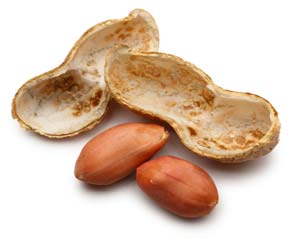
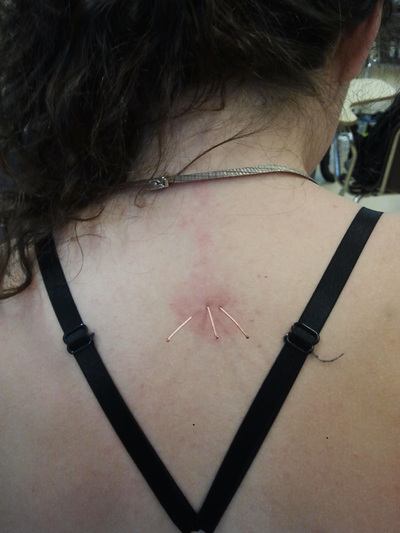
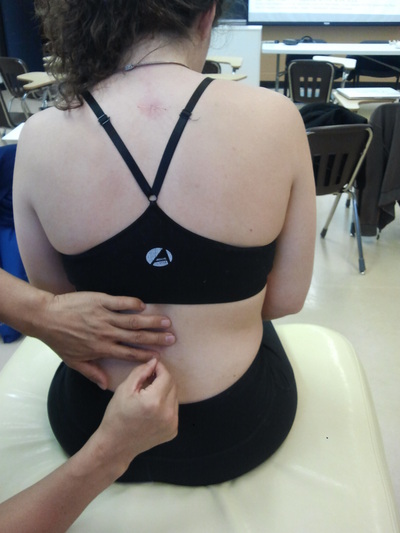

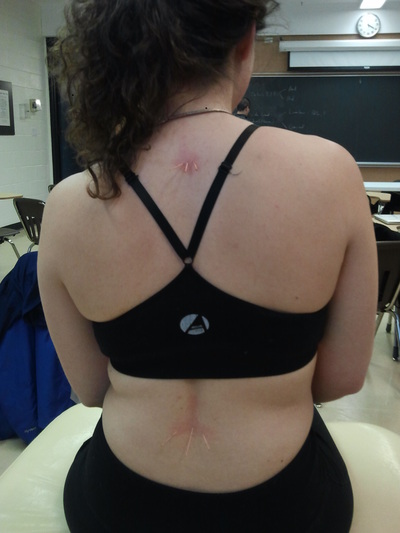
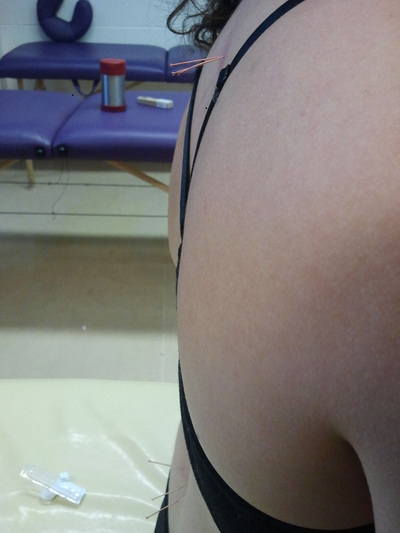

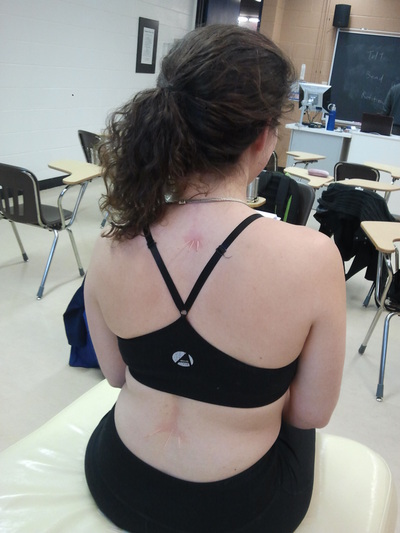
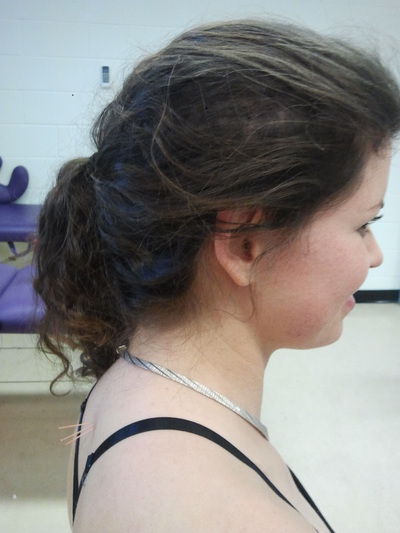
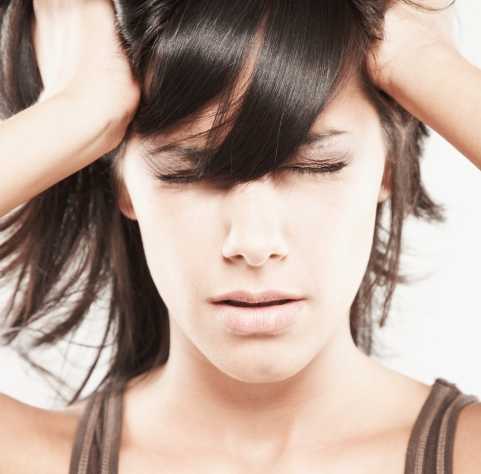

 RSS Feed
RSS Feed